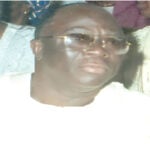His election was about the most controversial in the history of Nigeria but since the highest court of the land confirmed it, everyone resigned to it, and accepted it. The expectation was that there will be redemption, and that the President would leverage on his so-called experience to take Nigeria out of the woods. He had chorused restructuring as leader of the opposition and he had campaigned deceptively for true federalism as his mantra. Alas, two years down the line, Nigeria is experiencing its worst economic crisis and the greatest threat to its security and survival. The desperation for power was too apparent, especially when in 2023 Nigeria, a leader was canvassing a Muslim-Muslim ticket just to win votes and capture power, by any means possible. And for the umpteenth time, President Bola Ahmed Tinubu jetted out to France, the new destination for the surrogate presidency. Usually shrouded in mystery, the President has embarked upon these phantom trips well over ten times at the last count, and they have not fetched Nigeria any dividend. At the time the President was visiting France, close to 70 persons were brutally murdered in Plateau State, many others were losing their lives in Benue State and majority of Nigerians were sleeping with both eyes opened, due largely to the worsening state of insecurity in the land. The national grid collapsed again as the President was leaving Nigeria, warnings were issued that 30 States are prone to heavy flooding and there were groans across Nigeria as farmers had stopped going to their farms on account of the mass invasion of herders and terrorists. These could not be the priority of the President, who has spent the better time of his tenure outside Nigeria. But something has to be done urgently, to stem the slide into anarchy, unbridled violence and bloodshed across the land. What is the security situation presently? We have a police force lacking in legitimate leadership, the armed forces is so politicized that the leadership is loyal only to the party in power and a commander-in-chief that seems to have been totally overwhelmed with the crisis. We are in a failed state, pure and simple, held down by bandits, terrorists, jihadists and criminals, to the embarrassing extent that retired army generals had to rally round themselves to raise huge sums of money to rescue the former head of the National Youth Service Corps from the den of kidnappers, after two months. The state has become helpless. Unconfirmed news filtered in through the social media that a pickup van was stolen from the convoy of the National Security Adviser when he went to pray at the mosque. It is that bad. The President has run Nigeria aground and he does not seem to care, so long as he gets re-elected for another four years, and by any means possible.
Nigeria became a State formally in 1960, with sovereign powers transferred from the British colonialists to the representatives of the people. By law however, section 2 (1) of the 1999 Constitution states that “Nigeria is one indivisible and indissoluble sovereign state to be known by the name of the Federal Republic of Nigeria”, and by section 2 (2) thereof, “Nigeria shall be a Federation consisting of states and a Federal Capital Territory”. So, in the real sense of the word, Nigeria is a sovereign state consisting of federating units. Fair enough, the same Constitution that created the Nigerian Federation also specified the kind of powers that it should exercise and the functions it should perform, for its citizens. In this regard, Chapter 2 of the self-same Constitution, comes to bear. I will limit myself for this discourse however, to section 14 of the Constitution. Under and by virtue of section 14 (2) (a), “sovereignty belongs to the people of Nigeria from whom government through this Constitution, derives ALL its powers and authority.” In very simple terms therefore, the sovereignty attached to the entity known as the Federal Republic of Nigeria, resides in the people of Nigeria. In essence, all our leaders hold power in trust for the people of Nigeria and they cannot go on acting as if it is the other way round. To break it down more, there is no President who should claim to be in power, there is no Governor who should assert any authority and there should be no legislative house or even a court of law that should rule over and above the people to lord their policies and decisions over them.
Now to section 14 (2) (b) of the Constitution, wherein it is stated expressly and without equivocation, that “the security and welfare of the people shall be the primary purpose of government.” A community interpretation of section 14 (2) (a) and (b) respectively will show clearly that the Nigerian State was created for the people of Nigeria, that the focus of the entity called Nigeria is the people and that the target of power and existence of that Federation, is the people. It is good therefore, to sound it loud and clear, that the very existence of government, the totality of the exercise of power, by all and sundry, is for the security and welfare of the people and anything outside this, anything done that cannot achieve this, means a failure of governance. According to the learned authors of Merriam-Webster Dictionary, SECURITY means: “(a) freedom from danger (safety); (b) freedom from fear or anxiety; … something that secures, protection or measures taken to guard against espionage or sabotage, crime, attack, or escape.” The priority of security in governance is better illustrated by section 4 of the Police Establishment Act, wherein it is stated that the police shall be “… employed for the prevention and detection of crime, the apprehension of offenders, the preservation of law and order, the protection of life and property and the due enforcement of all laws and regulations with which they are directly charged, and shall perform such military duties within or outside Nigeria as may be required of them by, or under the authority of this or any other Act.” What stands out in this section is the phrase “protection of lives and property”.
Now to welfare, since the two main points of governance are security and welfare. Merriam-Webster Dictionary defines WELFARE as “the state of doing well, especially in respect to good fortune, happiness, well-being, or prosperity.” Are we doing well as a people, presently? Are we enjoying some form of good fortune economically? Is the well-being of the people of this nation improving in any form at all? Are we happy with the state of things in Nigeria? Is there prosperity in the land? Are we safe as a people? Can we travel safely on our roads presently? Without any doubt whatsoever, suicide cases have increased, the economic power of the people has dwindled considerably and private businesses are all struggling to survive in the absence of basic infrastructure, especially power supply. I have no doubt in my mind that the true testimony across the land is that the majority of the people are suffering indeed.
The governor of Plateau State stated on national television that Nigeria is facing genocide, by way of deliberate acts of mass massacre of citizens with the government looking on helplessly. Bandits, kidnappers, terrorists, jihadists and criminals parade more sophisticated weapons than the military, they display their loot openly on social media, they hoist their flags in communities that are still under Nigeria, impose taxes on the people and appoint rulers over them, forcefully. And we still have a President, who is the Commander-in-Chief of the Armed Forces that lacks any form of decisive action, except to lord it over unarmed civilians. The present circumstance of Nigeria is that many people have become beggars of some sort. Even as businessmen and women, professionals and even as manufacturers, the bulk of the little profit margin is spent on infrastructure, whereby you are forced to generate your own electricity, provide your own water, build your own road, employ your own security, train your children in private schools or send them abroad, if they must excel, provide yourself healthcare if you must live, and maybe buy your own car if you must move around. It is that bad, that the government seems to have shifted all its responsibilities to the citizens. Can we then say that we have a nation or that any form of governance is in place? The President has failed Nigeria.
From all the above frightening scenarios, how do you describe the entity created as Nigeria if it is agreed that the two critical responsibilities of the government are the security and welfare of the people? The time has now come for some frank introspection that will translate into genuine appreciation of the debilitating welfare and security conditions of our people if we claim to have any government at all. In the absence of that, the reasonable conclusion is that we are now in a failed state. The main person we look up to for answers is the President, who must rise up and walk the talk or quit the stage.
READ ALSO: FG to Nigerians: Direct inquiries to us if you doubt fairness of Tinubu’s appointments






